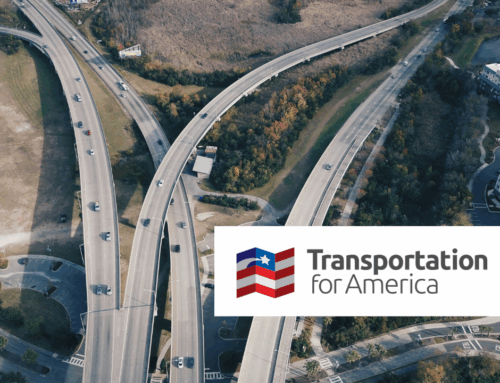This week, the House Transportation and Infrastructure Subcommittee on Highways and Transit is holding a hearing on “the need for a long-term solution for the Highway Trust Fund.” The hearing kicks off as the committee prepares its contribution to the broader GOP reconciliation package, with markup scheduled for Wednesday.
Among the proposals under discussion are new annual fees: a $200 registration fee for electric vehicles (EVs) and a $100 fee for hybrids, both dedicated to the Highway Trust Fund (HTF). In addition, the proposal includes a $20 annual registration fee per vehicle starting in 2031. While modest compared to the scale of the problem, these fees acknowledge a basic reality: all users of taxpayer-funded roads must contribute to their upkeep.
CBO Forecast Paints a Stark Fiscal Picture
The Congressional Budget Office (CBO) has confirmed what many have long warned: without fundamental changes, the Highway Trust Fund will be insolvent by 2028, with the deficit swelling to nearly $280 billion by 2034. It would already be insolvent if not for regular infusions of cash from the General Treasury. In 2024 alone, the user-pay gap—the difference between dedicated revenues and outlays—was $26.7 billion, and it is projected to reach $40 billion annually by the end of the decade.
The problem is straightforward. Federal fuel taxes, last raised in 1993, have been steadily eroded by inflation and rising fuel efficiency. Gasoline tax receipts are expected to fall by 39 percent over the next ten years. The shift to electric vehicles—while good for air quality—is devastating for a transportation system that relies on per-gallon fuel taxes to pay for itself.
The trust fund has been taking in less revenue than it has been spending for the last 20 years. Even the $118 billion general fund transfer included in the 2021 Bipartisan Infrastructure Law merely delayed the inevitable – again. Extending current spending levels for another five years would require an additional $143–$150 billion in general fund bailouts. In other words, the core user-pays principle that underpins the HTF has been hollowed out—at growing cost to all taxpayers.
The Budgetary Impact of a Vehicle Miles Traveled Tax
One option to maintain the user-pay model in light of increased EV usage and better fuel economy is a Vehicle Miles Traveled (VMT) tax. An innovative yet divisive proposal, a VMT tax has its merits and demerits. On one hand, it’s egalitarian, charging all vehicles for their use of our asphalt Eden, irrespective of their ecological virtues or fuel source. On the other hand, it is tangled in the brambles of administrative burden and fraught with privacy concerns. Must we trade our anonymity for well-maintained roads?
Oregon introduced a voluntary VMT program called OReGO in response to declining road and bridge maintenance funds from reduced fuel consumption. Launched by the Oregon Department of Transportation on July 1, 2015, the program charges participants 2 cents per mile driven on Oregon roads, with revenue directed to the State Highway Fund. In return, participants get a credit for the fuel tax they pay. Originally capped at 5,000 vehicles, the 2019 legislature expanded the program to allow unlimited participation. Vehicles that have a greater than 40 mile per gallon rating or that are fully electric receive reduced Department of Motor Vehicles fees.
We have repeatedly warned that reliance on repeated general fund bailouts obscures the true cost of federal transportation programs and unfairly shifts financial burdens from actual road users to all taxpayers, whether or not they benefit from federally funded highways and bridges. TCS has called for structural reforms that align spending with real revenues, prioritize maintenance over expansion, and modernize the user fee system to reflect 21st-century transportation realities. In our view, half-measures like ad hoc bailouts only delay the tough choices Congress must make.
Lawmakers now face a clear set of choices:
- Modernize User Fees: Reestablish an effective user-pays model through policies such as updated fuel tax rates, targeted EV fees, or a VMT system to better match road use with revenue collection.
- Align Spending with Revenues: Bring transportation spending back into line with actual user-generated revenues rather than papering over the deficits.
- Continue General Fund Bailouts: Rely on taxpayer subsidies that undermine the HTF’s original purpose and further erode fiscal discipline.
The Highway Trust Fund’s looming insolvency is not just a transportation problem—it is a taxpayer problem. The CBO’s latest forecast and the limited revenue from proposed EV fees should serve as a wake-up call. Congress can no longer delay hard decisions.
As the HTF barrels toward insolvency, lawmakers should not just to patch the fund temporarily, but rebuild a sustainable, fair funding model for the nation’s infrastructure.










